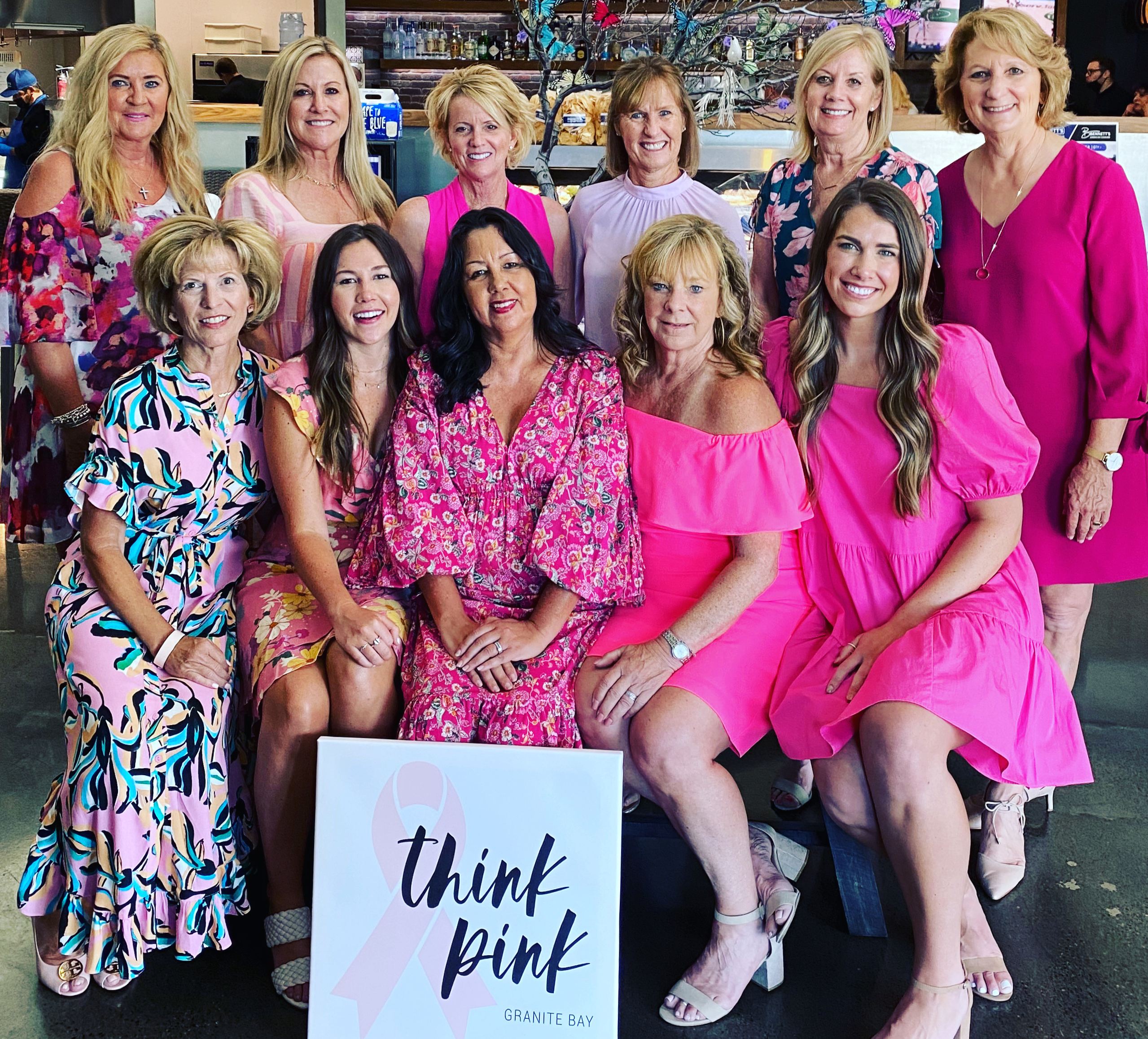Nancy Stuckey, seated in center, founded Think Pink Granite Bay to support breast cancer survivors and help fund research.
At a fashion show to raise funds for breast cancer survivors and research in October, Think Pink Granite Bay organizer Nancy Stuckey gathered with a group of women from all walks of life with one common goal: to support individuals living with the disease and help make the future brighter for those at risk.
“Everyone knows someone that has breast cancer — it could be a family member, friend, neighbor or colleague,” says Stuckey. “Our volunteer committee includes two breast cancer survivors as well as individuals who have lost family members to this disease. We are proud to support local breast cancer charities to make a difference in raising awareness across Northern California.”
Stuckey was diagnosed with breast cancer at age 49 and had come to know the importance of early detection after her mother died from the illness in 1986. Routine screening since the age of 30 because of her family, genetic history preceded the diagnosis of stage 1 breast cancer in 2011.
Now 60 and cancer-free after a double mastectomy done at Sutter Roseville Medical Center, Stuckey was impassioned to share her story with other breast cancer survivors and to start the nonprofit Think Pink Granite Bay in 2012.
The organization has been run by 11 friends and volunteers to promote breast cancer awareness. Since its inception, the program has raised approximately $200,000 for Sutter Roseville Breast Health Center as well as the Placer Breast Cancer Endowment at the University of California, Davis.
Stuckey Enrolls in Research Studies, Too
Committed to advancing breast cancer awareness as well as research, Stuckey realized that medical advances today may lead to better treatments and potentially a cure tomorrow. So, over the past several years she has enrolled in two research studies at Sutter that are tracking breast cancer patients over time to study how their genetic makeup, family history and lifestyle may affect risk of breast cancer recurrence as well as response to treatment.
Stuckey has joined the City of Hope 96144 molecular genetics study of cancer, as well as a study offered at Sutter in collaboration with researchers at the Dana Farber for women with the earliest form of breast cancer called ductal carcinoma in situ (DCIS) — a type of breast cancer in which cancerous cells grow but are confined within the milk duct of the breast. Most women with DCIS experience no outward symptoms and about 80% of DCIS cases are diagnosed by regular screening mammography.
“Through the use of registries, we can study breast cancer patients over time and assess their response to various treatments,” says Kristie Bobolis, M.D., clinical investigator, medical oncologist and hematology specialist at Sutter Roseville Medical Center. “We can also see which genetic subtypes of the disease are more or less responsive to different treatments. I am hopeful that information from these types of studies will significantly broaden our understanding of how breast cancer develops and how we can best treat it.
Next year, the Think Pink Granite Bay event will be held on Oct. 2 at the Granite Bay Golf Club and also streamed for virtual/remote participation. Follow Think Pink Granite Bay on Facebook and Instagram for more information.
Today’s Medical Research, Tomorrow’s Best Medicine
Breast cancer research has the potential to improve cancer care for the 3.8 million American women living with the illness. Not counting some types of skin cancer, breast cancer in the United States is the most common cancer in women, regardless of race or ethnicity; the most common cause of death from cancer among Hispanic women’ and the second-most common cause of death from cancer among white, Black, Asian/Pacific Islander, and American Indian/Alaska Native women.
Curious to learn about breast cancer research and clinical trial at Sutter? Learn more.





